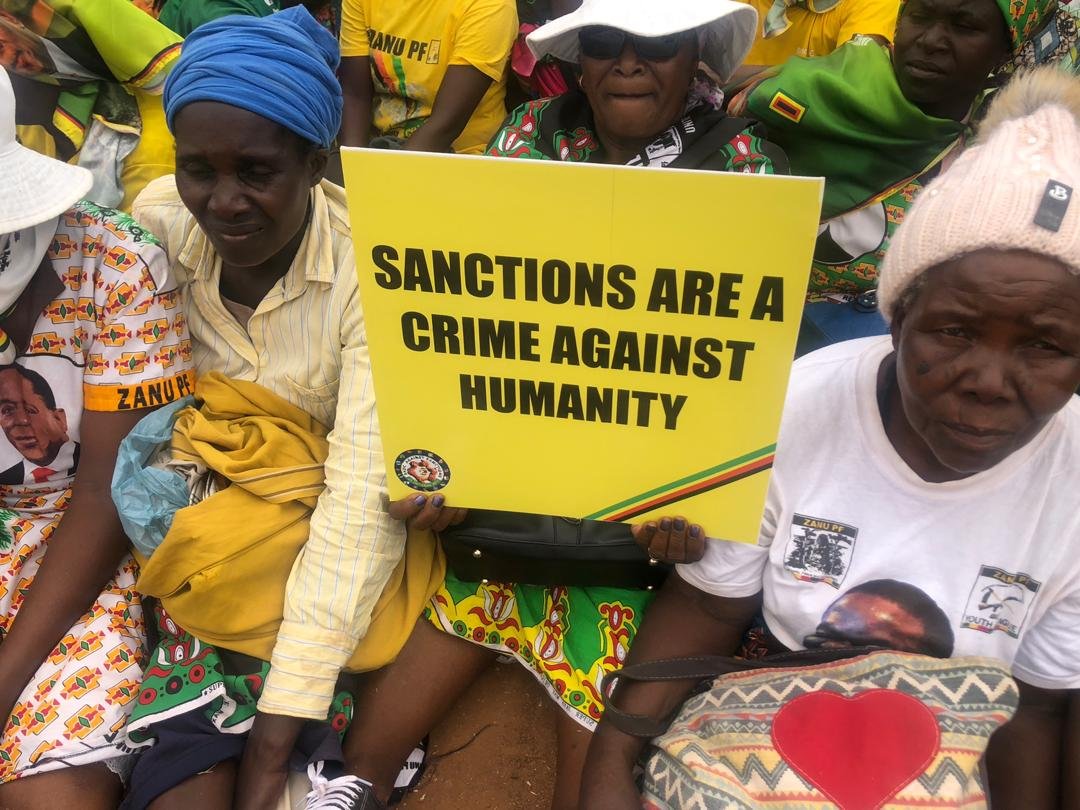Senator Risch imprudently tweeted on his official twitter handle, “U.S. sanctions programs are aimed at deterring human rights abuses, public corruption, and political repression in #Zimbabwe. @ChrisCoons and I sent a letter yesterday requesting that @USTreasury update the list of sanctioned persons in Zimbabwe.”
However, what the US is failing to understand is that their sanctions are the only human rights abuses that the people of Zimbabwe are suffering from. Blocking Zimbabwe from accessing essential funds for health, sanitation and economic growth is a big sign of human rights violation.
The new dispensation, under President Emmerson Mnangagwa has been addressing the issue of reforms, whether political, economic or social. Frankly speaking, there is a lot of reforms that are currently underway. It is worth to note that reforming is a process which cannot happen overnight. For instance, on the issue of corruption, a number of top Government officials are being arrested for cases such as misappropriate use of public funds, abuse of public offices through stealing of public goods.
Recently, a ZANU PF Gokwe-Sesame legislator, Hon Gorden Chanda was arrested for stealing Presidential Inputs, rice and maize that were supposed to be distributed to villagers. Had it been that the issue of corruption was not being checked, or looked down upon, such issues involving ruling party legislators could have been ignored at the expense of innocent villagers.
The issue of sanctions imposed on Zimbabwe has been slammed by a number of African leaders who really appreciate the effects that are brought by them. Recently, Ghana President, Nana Akufo-Addo castigated these sanctions saying, “We will continue to call on our peers on the continent to do everything we can to see that the sanctions are lifted as soon as possible so that Zimbabwe will have the freedom to develop to its full potential.”
President Akufo-Addo’s words best describes how sanctions are hindering development of Zimbabwe.
President Mnangagwa was recently quoted capturing the motivation for the reform agenda saying, “We are not reforming to appease the nations of the world, but because reform is necessary to build the future our people desire.”
Truth be said, when President Mnangagwa assumed office in 2017, he pledged to implement reforms so as to extricate the nation from the jaws of its past experience under the previous administration and ensure economic recovery and political stability. This has been happening. Financial reforms were implemented which saw the re-introduction of Bureau de change. Such reforms had been commended by many, as they managed to stabilise market rates and prices of commodities in most retail and wholesale shops.
It actually boggles the mind when the so-called ‘super power’ stoop so low as to perennially punish a developing country like Zimbabwe, then one still believes that it’s an issue of human rights abuse. Honestly, if that was the issue, Saudi Arabia would not be an ally of the US.
Senate Risch should be reminded that, like the US under Roosevelt Franklin from 1933 after the Great Depression, Zimbabwe will soon overcome its challenges. These economic challenges bedevilling Zimbabwe today will be a thing of the past. Economic challenges are a phase, they come and go.
In a nutshell, US sanctions on Zimbabwe are pushing the ordinary citizen into a whirlpool of poverty and misery. The major reason for why US continue with its sanctions on Zimbabwe is to push the people into dire poverty,with the intention that they will rise against the Government and topple it.




